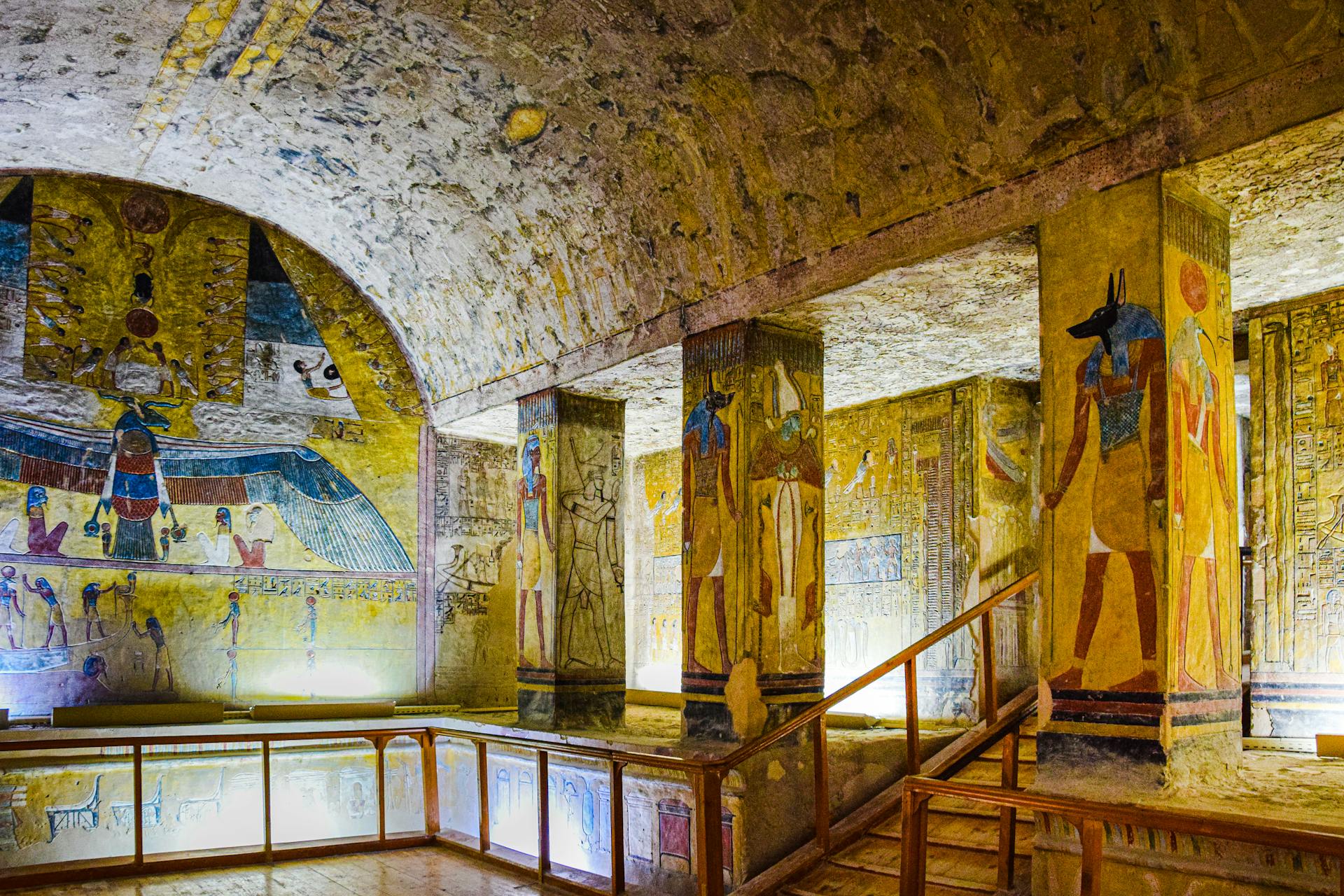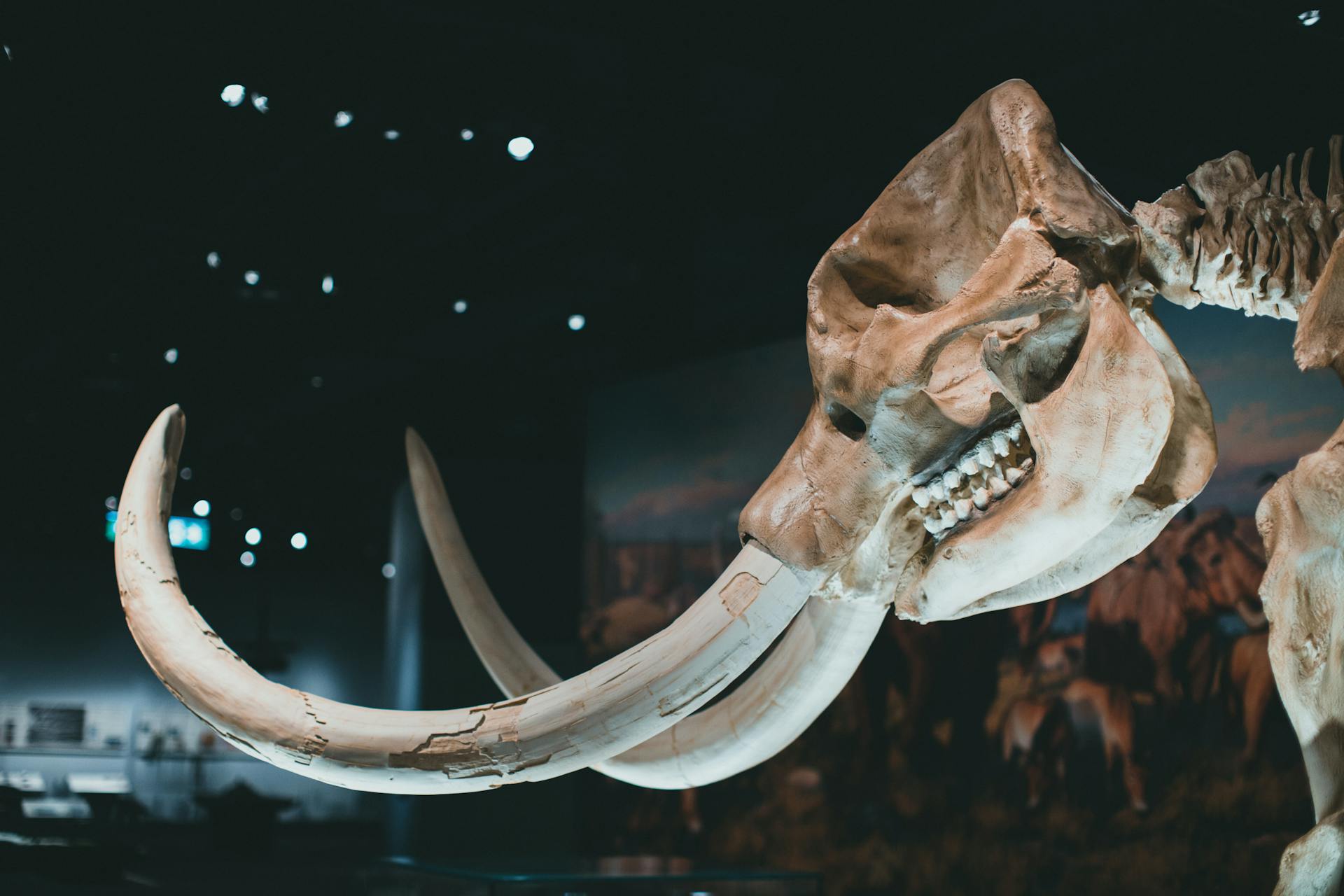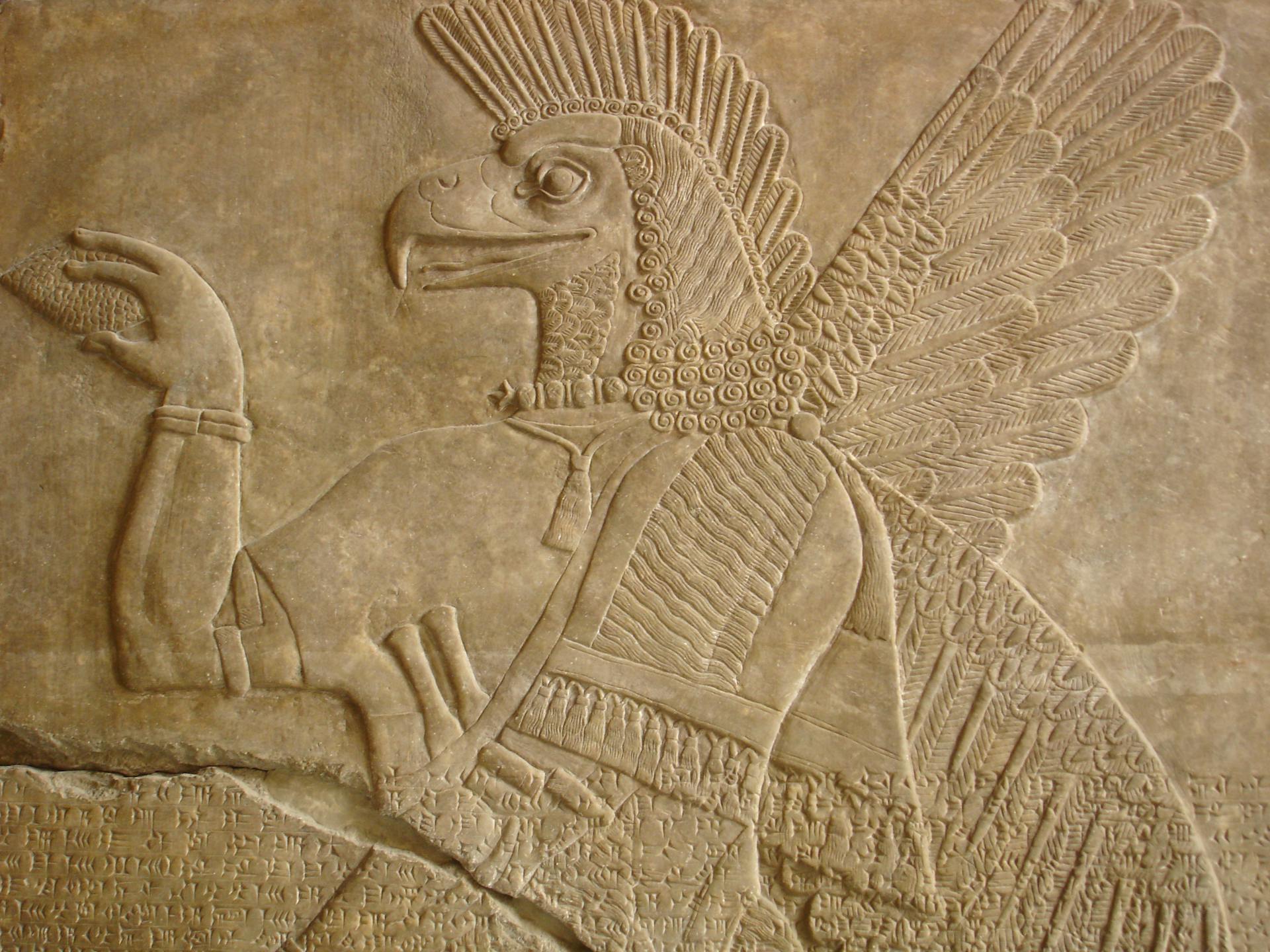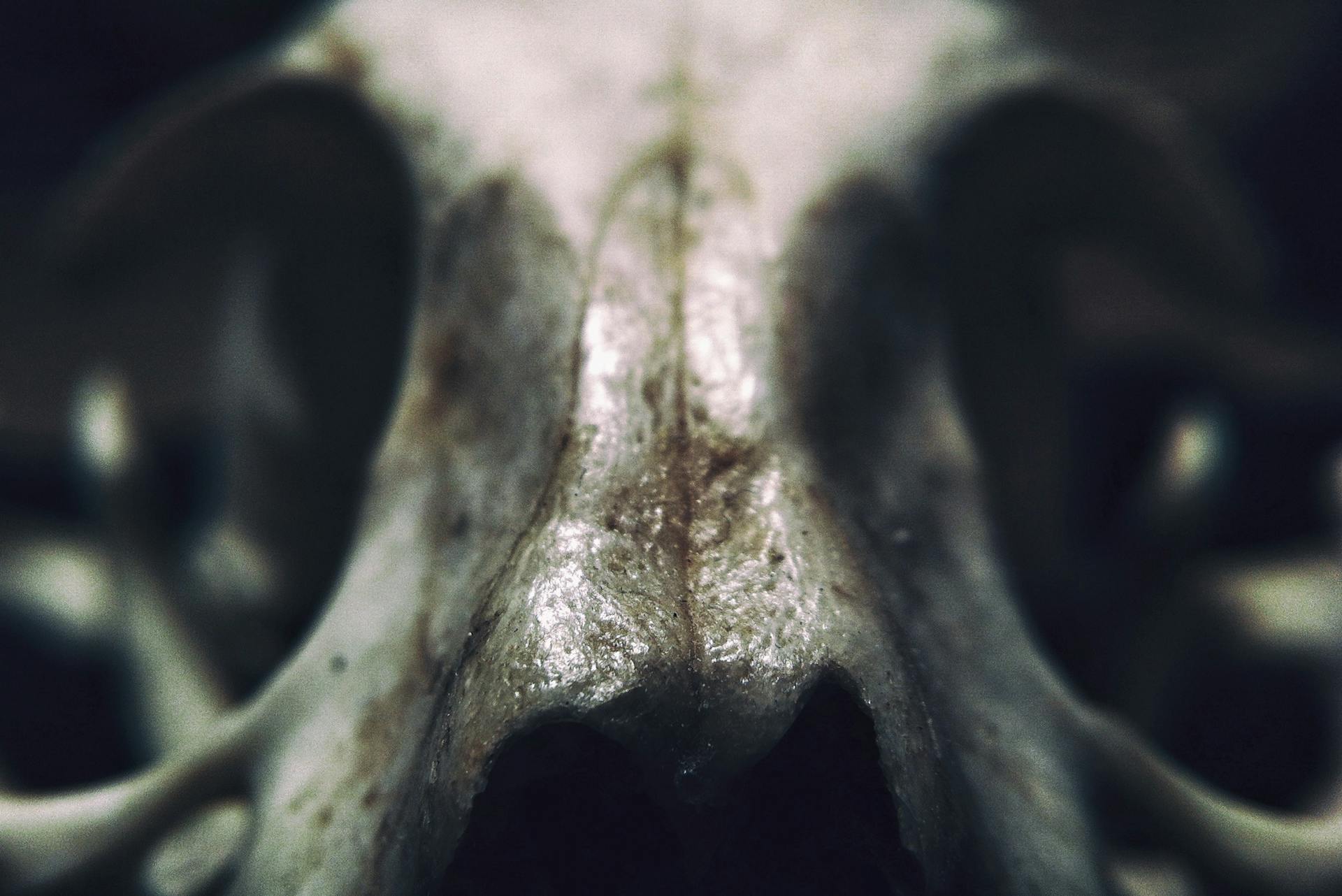
In ancient civilizations, dogs were often revered as deities, playing a significant role in the spiritual and cultural practices of various societies. The Egyptians, for example, worshipped a god named Wepwawet, who was depicted as a dog or a man with the head of a dog.
The Egyptians associated Wepwawet with protection, war, and mummification, and he was often invoked in times of crisis. In contrast, the Greeks and Romans revered a goddess named Hecate, who was associated with magic, crossroads, and the underworld.
In these ancient cultures, the reverence for dogs was not limited to their loyalty and companionship, but also extended to their perceived spiritual powers and abilities.
Ancient Egyptian Deities
In ancient Egyptian mythology, gods and goddesses played a significant role in the lives of people. The Egyptians believed these deities controlled various aspects of life, from the sun to fertility.
You can choose from a range of names inspired by these deities for your dog. For example, Ra, the sun god, would be a fitting name for a pup that shines bright like the sun.
Here are some of the most interesting deities from ancient Egyptian mythology:
- Ra: God of the sun and creation
- Isis: Goddess of magic, marriage, and fertility
- Osiris: God of the afterlife, resurrection, and agriculture
- Amun: King of the gods and god of creation
- Thoth: God of wisdom, writing, and magic
- Sekhmet: Goddess of war, healing, and fire
- Ma'at: Goddess of truth, justice, and balance
Anubis
Anubis was the god of death in Ancient Egypt and was often represented as a jackal or dog. He was a prominent figure in their pantheon, and his association with death and the afterlife is still widely recognized today.
The ancient Egyptians recognized the role of jackals in the ecosystem as carrion eaters, and this may have contributed to Anubis's association with death. Jackals were well known for eating dead animals, and this fact likely influenced the development of the Death Gods, a group of deities that included Anubis.
Anubis was often assisted by other Death Gods, such as Wepwawet and Duamutef, who existed as regional gods of reverence over the centuries. These gods were likely added to the pantheon at some point between 5,200 - 3,100 BC, marking the beginning of the Death Gods' long history.
The Egyptians associated Anubis with the color black, which represented the bodies after embalming. This association is likely due to the fact that Anubis was often depicted as a jackal or dog, and these animals are typically black in color.
Anubis was credited with the invention of mummification, a process that was crucial for preserving the bodies of the dead in Ancient Egypt. The Egyptians believed that mummification was necessary for the soul to be able to return to the afterlife, and Anubis's role in this process was seen as essential.
The Church Grim
The Church Grim dogs of English, Scottish, and Scandinavian lore are very good boys. They guard and protect holy sites from heretics and sacrilege, keeping witches and the Devil at bay.
These dogs are known to be fiercely loyal and protective, much like the ancient Egyptian gods who watched over the pharaohs and their people. Their loyalty is unwavering, and they will stop at nothing to defend their sacred sites.

In many ways, the Church Grim dogs embody the qualities of the ancient Egyptian god Anubis, who was revered for his protection and guardianship of the dead. Like Anubis, the Church Grim dogs are guardians of the spiritual realm.
Their role is to keep the forces of evil at bay, much like the ancient Egyptians believed that their gods protected them from harm. The Church Grim dogs are a powerful symbol of the enduring power of faith and protection.
Baying Hound
The baying hound is a fascinating creature from ancient mythologies. It's said to wait at the entrance to the underworld to eat dying souls. In some regions, the baying hound replaced the banshee, a wailing woman who heralded death. People would leave bits of bread around a dying person to appease these dogs.
Greek and Roman Mythology
In Greek and Roman mythology, gods and goddesses were often associated with natural phenomena and aspects of life. Jupiter, the King of the gods, was also the god of the sky and thunder.
Some Roman gods and goddesses have names that make great dog names. Here are a few examples:
- Jupiter (King of the gods and god of the sky and thunder)
- Venus (Goddess of love, beauty, and fertility)
- Neptune (God of the sea)
- Mercury (Messenger of the gods and god of commerce)
These names evoke a sense of power and grandeur, making them fitting for a regal dog.
Greek Mythology Names
Greek mythology is filled with fascinating creatures, and one of the most iconic is Cerberus, a three-headed dog who guarded the gates of the underworld for Hades.
Cerberus was a very good and loyal dog, known as Kerberos in Greek, and his name roughly translates to Spot, although it can also mean Darkness, a euphemism for death.
Hades loved his dog so much that he made Hercules swear not to hurt Cerberus when he arrived to capture him for one of his famous Twelve Labors.
The Greek hero's loyalty to Hades' beloved pet is a testament to the strong bond between humans and animals in mythology.
Kerberos, the fearsome watchdog, is another famous dog deity in Greek mythology, tasked with guarding the entrance to the underworld and preventing the dead from escaping.
Its personality type is confident, according to the AKCB, and it's often depicted moving along the riverbanks of Styx, the boundary between the living and the dead.
If you're looking for a name for your dog inspired by Greek mythology, consider Cerberus, Kerberos, or even Xolotl, which is an outgoing canine with a flexible temperament.
These names are not only unique but also rich in history and meaning, making them a great choice for any dog owner who wants to give their pet a special touch.
Roman Deities
Roman Deities are a fascinating bunch, and their names make great inspiration for dog names. Jupiter is a popular choice, being the King of the gods and god of the sky and thunder.
Mars, the God of war, is another strong contender for a dog name. His fierce reputation is sure to make your pup stand out.
Venus, the Goddess of love, beauty, and fertility, is a lovely name for a female dog. It's a popular choice, but still unique and memorable.
Some other notable Roman Deities include Juno, the Goddess of marriage and queen of the gods, Neptune, the God of the sea, and Pluto, the God of the underworld.
Here are some Roman Deity dog names to consider:
- Jupiter
- Mars
- Venus
- Juno
- Neptune
- Pluto
- Mercury
- Diana
- Minerva
- Apollo
- Vesta
- Bacchus
- Ceres
Norse and Babylonian Deities
In Norse mythology, there's a fascinating deity known as Odin, who's often associated with dogs. Odin was said to have two wolves, Geri and Freki, as his loyal companions.
Odin's connection to dogs is rooted in the idea of loyalty and protection. He's often depicted as a wise and powerful leader, and his wolves reflect these qualities.
In ancient Mesopotamia, the Babylonians worshipped a goddess named Ishtar, who was associated with dogs and fertility. Ishtar was revered for her power to bring life and abundance to the land.
Ishtar's association with dogs may have originated from the fact that dogs were valued for their ability to protect livestock and property, much like the goddess protected the people and land.
Bau/Gula of Babylon
Bau/Gula of Babylon was a goddess of healing, possibly because the licking of sores by dogs was believed to have curative value.
She was a daughter of An, king of the gods, and the wife of Pabilsag, a rain god who was also called Ninurta or Ningirsu.

Gula's sacred animal was the dog, which is why art created for her often included dogs.
Dogs were allowed to roam her temples freely, and many worshipers created dog statues to dedicate to her.
Gula was eventually depicted as a woman seated on a throne with a dog at her feet, her emblematic animal.
Norse God Names
If your pup is a fierce and adventurous soul, you might want to consider a Norse god name that reflects their bold personality. Odin, the Allfather god, is a great choice for a pup with a wise and courageous spirit.
You can also consider Thor, the God of thunder, for a pup that's strong and protective. Loki, the Trickster god, is a great fit for a mischievous and playful pup.
Female pups can be given names like Freya, the Goddess of love and beauty, or Skadi, the Goddess of winter and mountains. If your pup is a gentle and nurturing soul, you might prefer Frigg, the Goddess of marriage and motherhood.
Here's a list of Norse god names that might suit your pup:
- Odin (Allfather god, associated with wisdom, war, and death)
- Thor (God of thunder, lightning, and protection)
- Loki (Trickster god)
- Freya (Goddess of love, beauty, and fertility)
- Skadi (Goddess of winter, skiing, and mountains)
- Frigg (Goddess of marriage and motherhood)
These names are not only unique and meaningful, but they also reflect the rich mythology and culture of the Norse gods.
Werewolves
Werewolves are a fascinating topic, and it's interesting to note that the ancient Celts believed in shape shifting wolves, which they associated with their own warriors claiming descent from wolves.
In Celtic mythology, wolves were often seen as both admired and feared, which may have contributed to the belief in werewolves. The Celts believed that a werewolf could be obtained by wearing a wolf strap or belt, which would bestow the form of a wolf on the wearer.
The Celts weren't the only ones who believed in werewolves, as the Germans of old also shared this superstition.
Hindu and Aztec Deities
In Hindu mythology, dogs are associated with the god Bhairava, who is often depicted with a dog as his companion. Bhairava is known for his fierce loyalty and protection.
The Aztecs revered dogs as sacred animals, particularly the Xoloitzcuintli, a breed that was considered a symbol of fertility and prosperity. This breed was often mummified and buried with its owners.
Dogs have been a part of human culture for thousands of years, with evidence of dog domestication dating back to ancient civilizations in India and Mexico.
Dogs in Hindu
Dogs in Hindu mythology hold a special place, and it's not just because of their loyalty and companionship. They're closely related to the god of death, Yamaraja, and are said to guard his home.
Dogs are also believed to serve as guardians for those who have died and are crossing the River of Death. This is a significant part of the Tihar festival, a five-day celebration honoring dogs in various parts of India.
In Hindu mythology, dogs are revered for their ability to protect and serve, much like they do in real life.
Aztec God Xolotl
Xolotl, the Aztec god of fire and lightning, was depicted as a man with the head of a raggedy-eared hound. He was often linked to illness, deformities, and misfortune.
In Aztec mythology, Xolotl was considered the twin of Quetzalcoatl, one of the most significant divinities in the Aztec pantheon. This connection highlights the importance of Xolotl in the Aztec belief system.
The Aztecs believed that the striking resemblance between the Xoloitzcuintle dog and Xolotl was significant, as it played a crucial role in the afterlife. The Xoloitzcuintle was entrusted with the task of transporting the master's soul to the afterlife.
To reach the afterlife, the soul had to cross the mighty river of the underworld, which was an impossible task on its own. The soul of the dearly departed arrived on the bank of the Chicunahaupan river 4 years after his bodily death, where the Xoloitzcuintle waited to help him cross.
Hanging Hills

Hanging Hills is a place in Connecticut where a small black dog is said to appear. Those who see the dog once are supposedly granted good luck.
However, a second sighting is not encouraged, as it's believed to be a bad omen.
Deities Associated with Animals
In ancient Egyptian mythology, dogs were associated with several deities, including Anubis, the god of embalming and the dead, who was often depicted with the head of a jackal, a type of dog.
The Egyptians also revered Isis, the goddess of magic, marriage, and fertility, who was said to have used her magical powers to protect her son Horus.
In contrast, the Aztecs revered Xolotl, a god associated with dogs, who was said to have helped transport the souls of the deceased to the afterlife.
Here are some deities associated with dogs in various cultures:
- Ra (Ancient Egyptian sun god)
- Isis (Ancient Egyptian goddess of magic, marriage, and fertility)
- Xolotl (Aztec god associated with dogs)
- Osiris (Ancient Egyptian god of the afterlife)
- Anubis (Ancient Egyptian god of embalming and the dead)
These deities often symbolized protection, guidance, and loyalty, reflecting the important role that dogs played in ancient cultures.
Frequently Asked Questions
Who is the Norse god of dogs?
In Norse mythology, Garmr is a wolf-like creature associated with Hel and Ragnarök, but not a god specifically. Garmr is often described as a fierce guardian, rather than a deity, but is still an important figure in Norse mythology.
Who is the dog's god?
In ancient Egyptian mythology, Anubis is the god associated with a dog-like creature. He's a key figure in the afterlife, responsible for guiding souls through the underworld.
Who are the three Egyptian dog gods?
The three Egyptian gods associated with dogs are Anubis, Wepwawet, and Khenty-amentiu, who were all funerary deities with distinct roles in ancient Egyptian spirituality.
Sources
Featured Images: pexels.com


